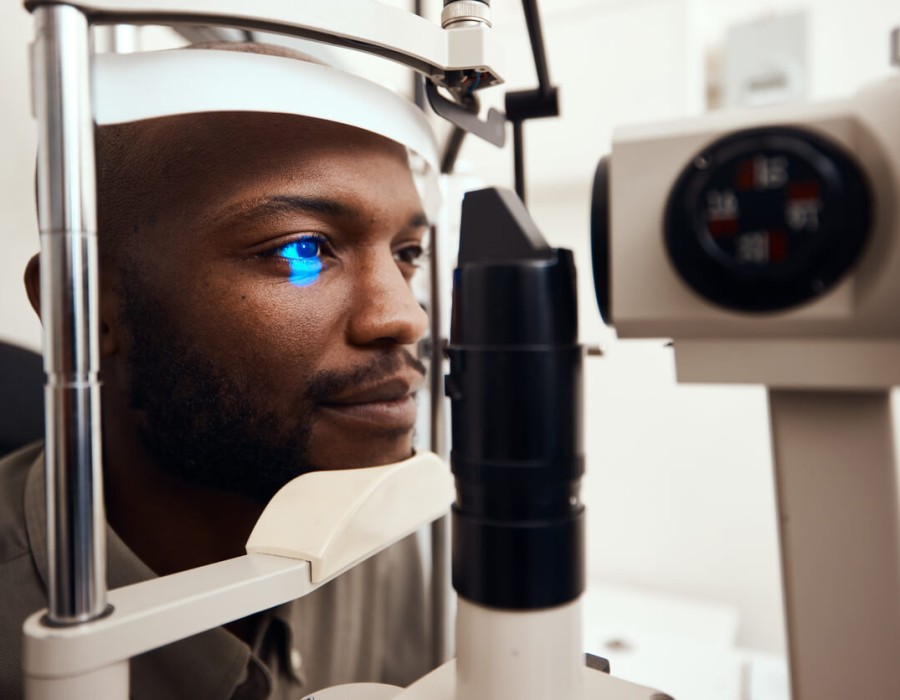You can schedule an appointment with an ophthalmologist before you have visual problems. Getting regular checks to detect the early signs of eye disease is a good idea.
You probably don't want to take the risk of losing your vision. This is why knowing when you should see an eye doctor is important. Here are several indications that you may need to schedule an appointment with a specialist:
Blurry Vision
Sudden alterations in vision can occur for several causes. If you notice that your eyesight is changing, you should schedule an eye exam to establish the cause.
Also, be alert to symptoms that cause difficulty focusing, especially if they just affect one eye.
Even if it's as simple as changing your prescription lenses, don't put off seeing an eye care professional. Instead, schedule a consultation with an ophthalmologist to rule out any major issues and understand why your eyesight is changing.
Vision Disturbances
Sudden vision problems may indicate serious eye diseases that require prompt treatment. Examples include vision blockages, light flashes, black patches, dark shadows, and floaters. These symptoms could be indicative of a retinal detachment, tear, or macular hole, necessitating a retina specialist for proper treatment.
If there is a major cause for these problems, get medical assistance immediately. Treatment during the first 24 hours may lower your risk of vision loss.
Double Vision
Some causes of double vision might be serious, so you should see an ophthalmologist right away. Double vision, for example, could indicate a larger health condition, such as blood vessel abnormalities in the brain or a stroke.
Eye Pain
If your eyes hurt, it could indicate an underlying disease. Serious eye illnesses, for example, can cause eye pain and result in permanent vision loss in a matter of days. So, don't wait till the discomfort subsides; arrange an eye test as soon as feasible.
Pay attention to any additional symptoms that come with the discomfort. Examples include vomiting, nausea, and headaches. Also, keep in mind that eye strain or little pain is usually not a cause for concern. However, it is always a good idea to see an ophthalmologist to rule out any more serious issues.
Foreign objects in the eye can also cause pain. An eye specialist can assist you remove the object and avoid further injury.
Color Change in the White Areas of the Eye
You should be able to see a white color in the eyes; however, it may change to pink or red. A color change may indicate a more serious issue, such as an infection or allergies.
An eye care professional may be required to treat a change in the white area of the eye. Unfortunately, your primary care practitioner has inadequate experience and knowledge of potentially serious eye diseases. So, the best option is to schedule an appointment with an ophthalmologist for a diagnosis.
Difficulty Driving or Seeing at Night
If you notice that your vision is changing while driving at night, this is one of the first symptoms that you should see an ophthalmologist. Mild vision loss is most obvious when it occurs at a distance or in darkness.
The remedy could be as simple as buying new glasses or contact lenses. You may also be experiencing early symptoms of a more serious eye illness, such as glaucoma or cataracts.
Light Sensitivity
Do you shudder or close your eyes when exposed to light? Light sensitivity is often a sign of ocular inflammation.
Certain eye illnesses that cause light sensitivity can result in scarring of the eye. As a result, seeking medical attention as soon as possible is critical. On the other hand, some disorders may be unconnected, such as a migraine headache, infection, or allergies.
Dry Eyes
Symptoms of dry eyes can range from slight discomfort to persistent problems that interfere with everyday activities. For example, your eyes may feel gritty or sticky.
One curious symptom to note is that dry eyes might occasionally manifest as excessive tears: your eyes will not stop watering. This symptom could indicate low-quality tears due to an imbalance in the delicate tear generation system.
Dry eyes are sometimes a symptom of a larger problem, such as pharmaceutical side effects or allergies. Alternatively, you may need to modify the way you wear contact lenses.
If you have chronic dry eyes, consult an ophthalmologist to determine the cause.
Time for an Eye Exam
When was the last time you had a full eye examination? If it's been more than a year, schedule an appointment with an ophthalmologist.
Annual vision screenings are necessary for healthy living. Just as you would see a primary care physician for a yearly checkup, you should also see an ophthalmologist to get your vision checked.






Comments